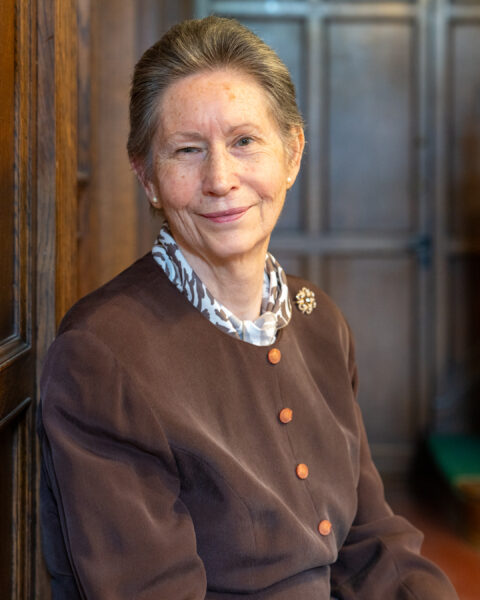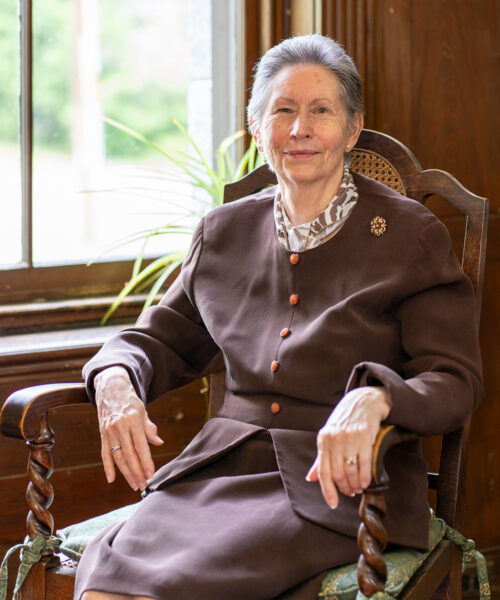September 8, 2024
Keeper of the Flame, Teller of the Stories
By Clementina Verge
Photograph by Anne Day
Jean McMillen not only records and preserves stories, but has lived a compelling one.
Before becoming Salisbury’s town historian, she arrived in the neighborhood in 1967, a Keuka College graduate hired to teach fourth grade at Salisbury Central School. She held the position for 24 years—decades filled with inspiring experiences, including a land purchase in 1974.
With money saved for a down payment, she needed a $3,000 mortgage, which Litchfield Bank declined lending until her father signed a surety. Building a home while a single woman in the 1970s was a significant accomplishment—much like being the first teacher in the Region 1 School District to earn a sabbatical to the UK to study the British education system.
Idleness was not in the books for McMillen upon retirement; in 2010, she became involved with the Salisbury Oral History Project, launched in 1981 by residents who believed it important to preserve first-hand vignettes of life in town.
McMillen expanded the project’s scope: Instead of collecting memories only from older citizens, she included those who work in and contribute to the community. She also created a reference index exceeding 30 topics, including Families, Farms, Railroads, and the Iron Industry. To date, 430 oral histories have been completed and transcribed.
The tedious work requires long hours of conducting interviews, copying tapes, cataloging, and storing—originals in the library’s vault; transcriptions in the History Room.

Like fairy tales, the archives spark imagination. More importantly, however, they reveal history in ways that mere textbooks cannot. Cora Marion Belter, born in 1902, talks about a childhood without playmates, spent making mud pies, having picnics in the woods, and paying 10 cents to see “Pocahontas and John Alden” at a moviehouse owned by Bert Roberts in Lakeville.
Bill Binzen reminisces about the devastating flood of 1955, when the Housatonic River rose about 150 feet. Born as World War I ended, Binzen became a prominent photographer and children’s book author before his death in 2010.
Stories of he Stuart Theater burning down on Christmas Day 1958, and inns, telegraph stations, and ice houses erased by history are in fact preserved. These testimonies matter because “they’re about legacy, tradition, and connection,” McMillen explains. “People are less likely to destroy or neglect what they become part of.”
In March 2023, McMillen was surprised by a letter from Keuka announcing her nomination for the Effective Use of Retirement award. At first she thought it a prank, but the application was legit. She filled four pages with her volunteer experiences including after-school programs, being a Holley-Williams House Museum docent, and, of course, the Oral History Project. She won.
“It was truly an honor because it was the Oral History Project itself that was recognized, not just me,” she says.
While roads and buildings make a town, humans weave its tapestry,. McMillen considers none more beautiful than Salisbury’s.
“From cradle to grave, this is a community where people care about each other,” reflects McMillen. “It’s a special place.”—salisburyassociation.org




















